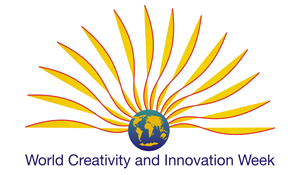Why Creativity is the Most Important Leadership Quality
Chief Learning Officer (05/30/12) Nikravan, Ladan
IBM’s 2010 Global CEO survey of more than 1,500 chief executive officers in 33 industries worldwide found that creativity is the most valued leadership quality for business success, outranking competencies such as integrity and global thinking. Respondents said that the ability to create something that is both new and appropriate in a business environment that is volatile, uncertain, and increasingly sophisticated is a critical skill.
Creativity experts say that organizations should use collective imagination to cultivate solutions to the evolving challenges posed by the environment, because imaginative thinking is more likely to lead to breakthrough ideas and innovations. But a recent study by AMA Enterprise and the Institute for Corporate Productivity found that creativity is one of the hardest leadership skills to master, because today’s executives are overwhelmed on any given day with too many tasks and too little time. This squeezes out time for real thinking, brainstorming, or experimentation, and stepping away from the numerous tasks that must be accomplished can make “time to think” a luxury.
According to Chris Grivas, a creativity consultant and author, the best way for learning leaders to teach creativity is to model it. “The keys to making change stick are knowledge and consistency — having a strong understanding of the creative process, tools and techniques to facilitate progress within that process, and using the process whenever solving a problem,” Grivas said.
He and others have noted four creative thinking preference types that each organization should try to include — clarifiers, ideators, developers, and implementers. Each mode of thinking is integral to the creative process and necessary for organizational breakthroughs, but research has highlighted the fact that people will vary in regard to how comfortable they are thinking and acting as each type. While creativity can happen by chance, experts say it also can be guided, as leaders seize control of their own creativity and deliberately strive to bring about breakthrough results and products when they grasp the universal creative process. Grivas says trained leaders who consistently apply the creative process and creative tools will make all the difference in fomenting strong creative abilities throughout the organization.
See full article at: Chief Learning Officer
Thanks to Janice Francisco for the link.
Related articles


https://creativityland.ca/2012/why-creativity-is-the-most-important-leadership-quality/
America today is analogous to the star Olympic aelthte who got lazy and out of shape, with the dawn of hope and Hillary Clinton as President we now have the chance to regroup and collectively pull this country out of the cesspool that the criminal Bush administration has put us in. Patience, we will come back even stronger.